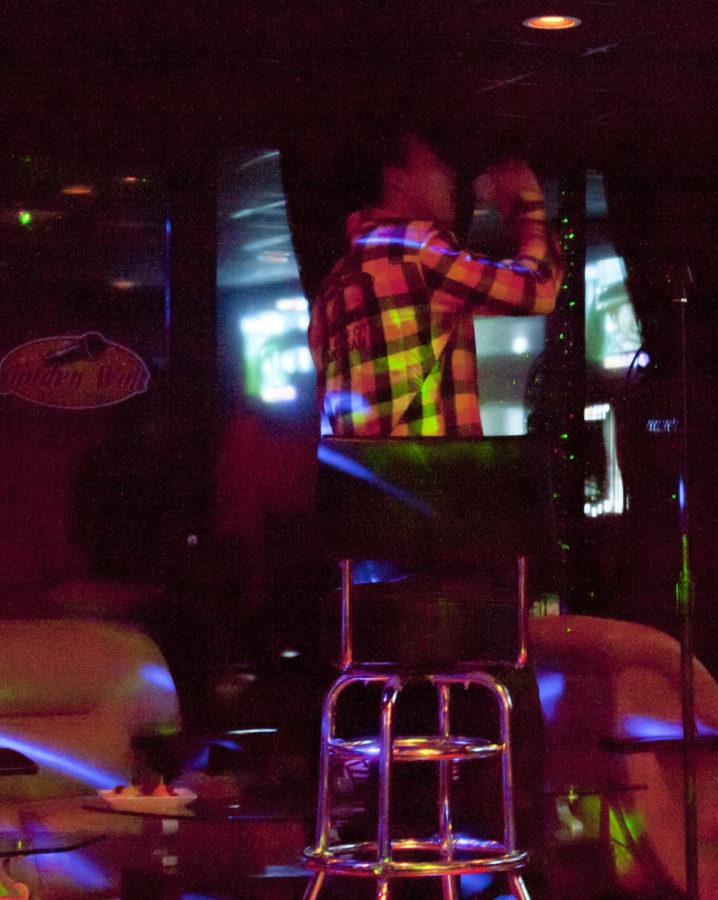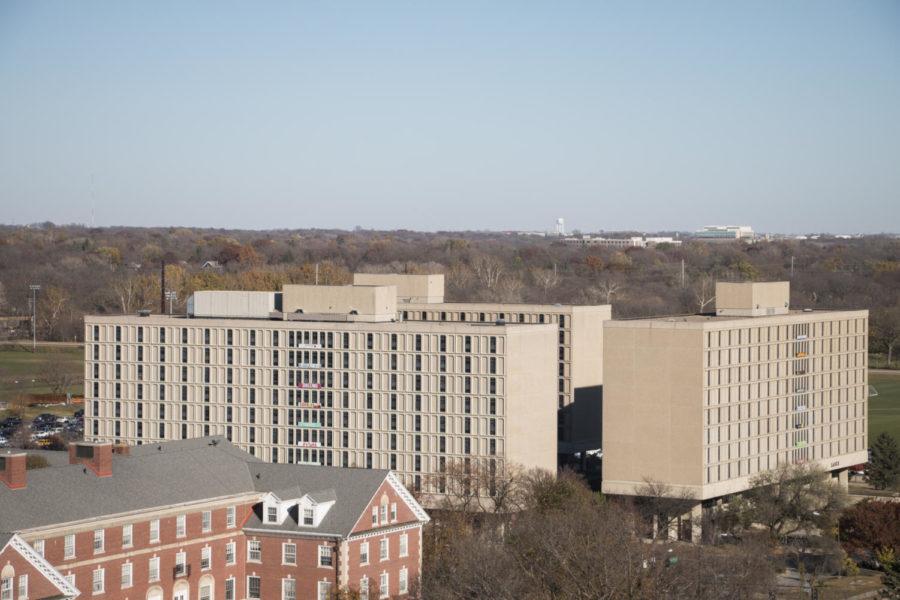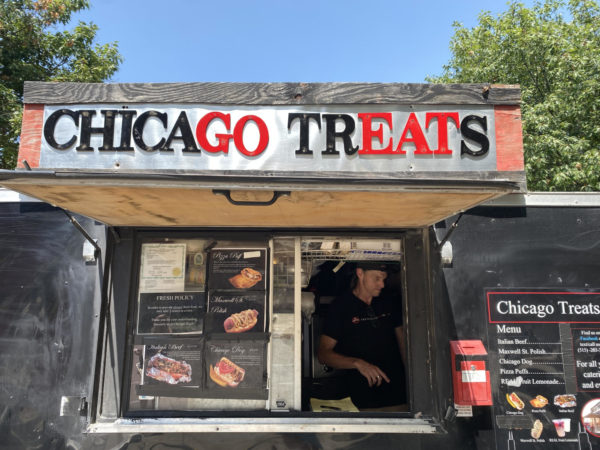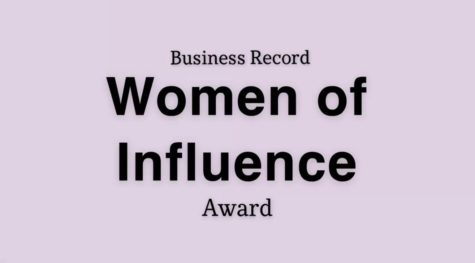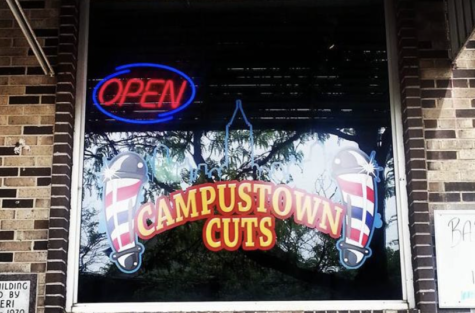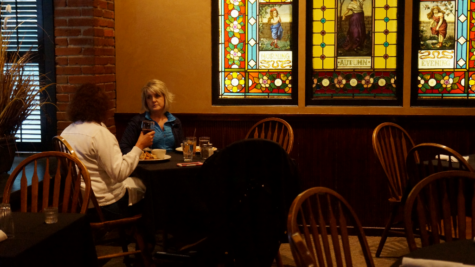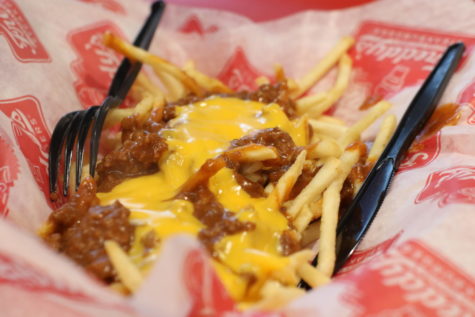Golden Wok brings Asian culture to Ames
Photo: Ethan Crane / Iowa State Daily
Students sing along to a favorite band on the main level of Golden Wok. The Chinese restaurant opened in 1986 on the corner of Welch Avenue and Hunt Street in Campustown, and has evolved today to a three-story business that includes a karaoke lounge.
September 25, 2012
The word “karaoke” is a combination of two Japanese words. The first half of the word means empty or void. The second half of the word means orchestra.
It has been said that a small snack bar in Japan originated the word karaoke. When a performer who was scheduled to sing could not come, the owner of the bar turned on the recorded music and encouraged his customers to sing along with him, so as not to disappoint them.
Golden Wok, an authentic Chinese cuisine restaurant, opened in 1986 on the corner of Welch Avenue and Hunt Street in Campustown. Today, it has evolved into a three-story business with the karaoke lounge that Golden Wok added about a year ago.
The first floor is the main karaoke lounge. It features an upbeat, colorful and fun area with large television screens and lights whirling around the entire room. The second floor is the restaurant where you can enjoy the dining atmosphere. They also offer delivery and carryout, and on the third floor, there are four private karaoke lounges.
The private rooms are very comfortable with large couches and a large television. Microphones are set out next to the screen where you can select your next song. The rooms provide a place for only yourself and your friends to sing, making it a more relaxed experience.
Golden Wok is perfect for large groups of people celebrating big birthdays, small parties or just a fun night out.
Karaoke bars vary from city to city. Some are not so great, but Golden Wok has given the feeling of being back at home for some of the Asian population.
They serve a traditional drink called bubble tea that is made with milk. It is very popular in the summer and comes in several flavors. Ice cream is served as well. It is very unusual to integrate food and beverage at a karaoke bar.
Shannon Zheng, assistant manager at Golden Wok, said, “The guests really like our karaoke lounge. Each reservation for karaoke receives a free appetizer.”
There are many differences between the karaoke bars in Ames, Iowa and China. The largest would be the technology.
Lu Yang, a Chinese senior in biological systems engineering and president of the Chinese Language and Culture Club, described Asian technology as much more advanced, and the music to have much more selection.
Aili Mu, associate professor of Chinese language and culture, said in return to that, “But then to be fair, [China] is like a few million people, maybe close to 10 million. This is Ames!”
The population makes a large difference on the music selection in Ames, of course, but Golden Wok has managed to cater to the different languages.
“Karaoke guests can choose songs in a variety of languages. Some include: English, Chinese, Korean, Japanese and Malaysian,” Zheng said. “A lot of foreign students want to have the chance to sing karaoke in their native language.”
Another difference between Asian and American cultures is the idea of what a party is. When Americans want to go out, they tend to go to parties at their friends’ houses. A night of fun to those of the Asian culture isn’t staying in every weekend. It is much more fun to go out to places like karaoke bars to sing and dance.
“Karaoke is just a bigger cup of bubble tea. It’s just bringing a piece of China or the popular culture to the States” Mu said.

